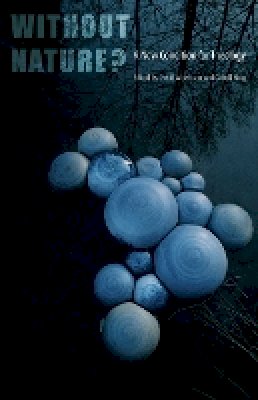10%OFF

Stock image for illustration purposes only - book cover, edition or condition may vary.
Without Nature?: A New Condition for Theology
David Albertson
€ 50.99
€ 46.10
FREE Delivery in Ireland
Description for Without Nature?: A New Condition for Theology
Paperback. Is nature undergoing fundamental change? What role does nature play in theological ethics? How might ethical deliberation proceed without nature in the future? This book brings leading natural and social scientists into conversation with prominent Christian theologians and ethicists to wrestle collectively with difficult questions. Editor(s): Albertson, David. Num Pages: 448 pages. BIC Classification: HRCM; RNP. Category: (UP) Postgraduate, Research & Scholarly; (UU) Undergraduate. Dimension: 226 x 152 x 28. Weight in Grams: 647.
Does “nature” still exist? Common wisdom now acknowledges the malleability of nature, the complex reality that circumscribes and constitutes the human. Weather patterns, topographical contours, animal populations, and even our own genetic composition—all of which previously marked the boundary of human agency—now appear subject to our intervention. Some thinkers have suggested that nature has disappeared entirely and that we have entered a postnatural era; others note that nature is an ineradicable context for life.
Christian theology, in particular, finds itself in an awkward position. Its Western traditions have long relied upon a static “nature” to express the dynamism of ... Read more
Product Details
Format
Paperback
Publication date
2009
Publisher
Fordham University Press United States
Number of pages
448
Condition
New
Number of Pages
448
Place of Publication
New York, United States
ISBN
9780823230709
SKU
V9780823230709
Shipping Time
Usually ships in 7 to 11 working days
Ref
99-1
About David Albertson
David Albertson is Assistant Professor in the School of Religion at the University of Southern California. Cabell King is a Ph.D. candidate in theology at the University of Chicago Divinity School.
Reviews for Without Nature?: A New Condition for Theology
"We scholars, in spite of our critical tendencies, can nevertheless find ourselves sliding along with the momentum of major conceptual shifts as if they were a fait accompli. The editors of this volume refuse to do so, instead asking if, in this post-modern context, we really are ready to dispose of 'nature' as a descriptive, moral, and theological category. They ... Read more
